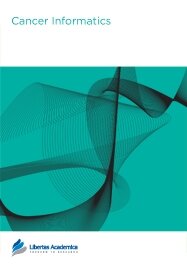

Publication Date: 07 May 2013
Type: Commentary
Journal: Cancer Informatics
Citation: Cancer Informatics 2013:12 115-124
doi: 10.4137/CIN.S11583

This paper discusses the need for interconnecting computational cancer models from different sources and scales within clinically relevant scenarios to increase the accuracy of the models and speed up their clinical adaptation, validation, and eventual translation. We briefly review current interoperability efforts drawing upon our experiences with the development of in silico models for predictive oncology within a number of European Commission Virtual Physiological Human initiative projects on cancer. A clinically relevant scenario, addressing brain tumor modeling that illustrates the need for coupling models from different sources and levels of complexity, is described. General approaches to enabling interoperability using XML-based markup languages for biological modeling are reviewed, concluding with a discussion on efforts towards developing cancer-specific XML markup to couple multiple component models for predictive in silico oncology.
PDF (706.65 KB PDF FORMAT)
RIS citation (ENDNOTE, REFERENCE MANAGER, PROCITE, REFWORKS)
BibTex citation (BIBDESK, LATEX)
XML
PMC HTML

I would like to extend my gratitude for creating the next generation of a scientific journal -- the science journal of tomorrow. The entire process bespoke of exceptional efficiency, celerity, professionalism, competency, and service.

All authors are surveyed after their articles are published. Authors are asked to rate their experience in a variety of areas, and their responses help us to monitor our performance. Presented here are their responses in some key areas. No 'poor' or 'very poor' responses were received; these are represented in the 'other' category.See Our Results
Copyright © 2014 Libertas Academica Ltd (except open access articles and accompanying metadata and supplementary files.)
Facebook Google+ Twitter
Pinterest Tumblr YouTube